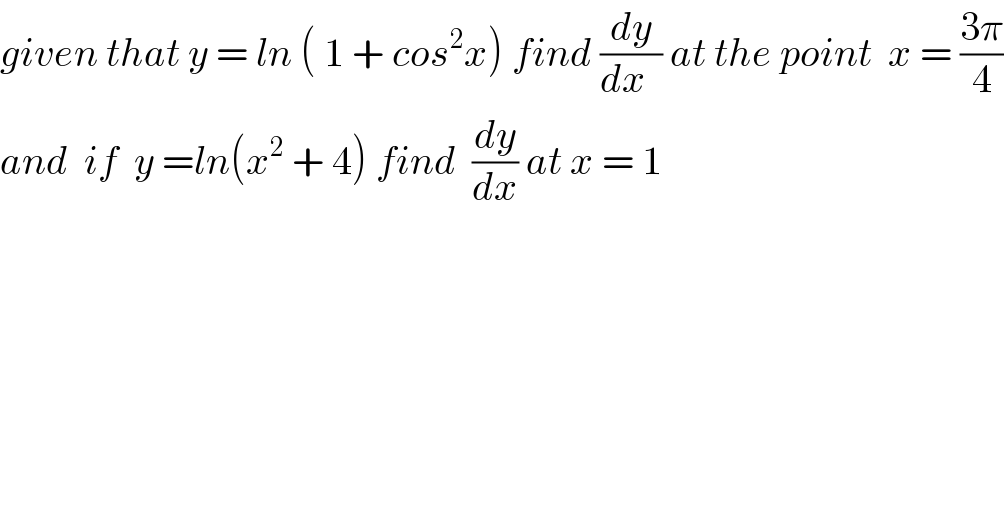
Question and Answers Forum
Question Number 72343 by Rio Michael last updated on 27/Oct/19

Commented by mathmax by abdo last updated on 27/Oct/19

Commented by Rio Michael last updated on 30/Oct/19

Commented by mathmax by abdo last updated on 31/Oct/19

